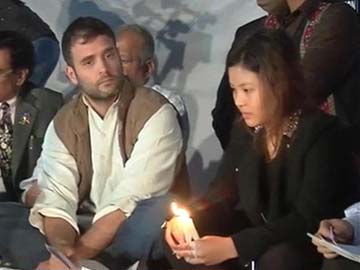
According to Union Minister of State for Minority Affairs Ninong Ering, Rahul asked the Home Minister to order the probe into the death of Nido Tania and provide justice to the family.
"Rahulji has called up Shindeji in front of us and requested for the probe. Since the Home Minister is out of station, he told Rahulji that he would do the needful once he is back in Delhi tomorrow," Ering, who hails from Arunachal Pradesh, told PTI here.
Ering led a delegation of students from northeast seeking Rahul's help for a speedy investigation and justice to the family.
The MoS for Minority Affairs said he along with a delegation of students would meet the Home Minister tomorrow to press for their demands and proper security of the people of northeast living in different parts of the country, particularly in Delhi.
The Centre today directed Delhi Police to adopt zero tolerance approach in cases of attacks on people from northeast and asked it to strictly follow the guidelines in providing security to those hailing from the region.
At a high-level meeting, the Home Ministry directed Delhi Police to immediately register cases of atrocities on people of northeastern region, launch probe upon receiving complaints and book the guilty.
The Delhi High Court also took suo motu cognisance of media reports about the killing of the Arunachal Pradesh student and asked the Centre to file a report on the incident.





Comments
Add new comment